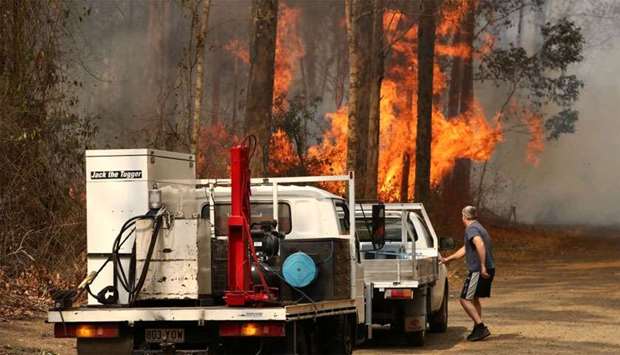More than 20 homes have been destroyed by spring fires in Australia, officials said on Wednesday, straining communities already suffering under the region's worst drought conditions in living memory.
Blazes in New South Wales (NSW) state have ravaged more than 80,000 hectares (198,000 acres) of land this week alone, and state fire service officials said they were monitoring about 25 fires ahead of what's shaping up to be a long bushfire season.
‘I'm extremely concerned ... this is going to be a horrible bushfire season,’ state premier Gladys Berejiklian told reporters in Sydney.
Most of the homes were lost in the northern towns of Busbys Flat, Rappville and Casino, part of a major agricultural area.
Large areas of eastern Australia are experiencing severe drought. Several rural centres could run out of drinking water next year unless rains come.
Australia's air temperature has warmed over the past century, according to a state of the climate report in January, increasing the frequency and intensity of extreme events like drought and fires.
Rob Rogers, NSW Rural Fire Service deputy commissioner, said fire crews from other states were coming to help so firefighters did not get worn out so early in the season.
‘In light of how long some of those crews have been going, we've called for interstate support,’ he said.
Fire services are also monitoring blazes in the state of Queensland, while high-risk fire alerts have been issued in the Northern Territory and Western Australia, Prime Minister Scott Morrison said.
‘Our thoughts are with those who have lost a great deal, fortunately there's been no loss of life,’ Morrison said.
Fires have been raging in Australia for several weeks, despite it only being mid-spring. Usually, fires are more severe in summer.
Queensland vineyard owner Robert Davidson was at home in early September when a damaged powerline set his plum orchard ablaze before flames tore through four blocks of vineyards reserved for a fledgling wine brand.
‘It's bone dry. It's like a ticking time-bomb out there. Normally we'd be doing controlled burns and now we're burning for all the wrong reasons,’ he told Reuters.

